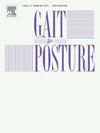Practical clinical measures highlight cognition-balance associations in Parkinson's disease
IF 2.2
3区 医学
Q3 NEUROSCIENCES
引用次数: 0
Abstract
Introduction
Cognitive impairment in people with Parkinson’s disease (PD) is associated with balance deficits and fall risk. Despite this, cognition is not routinely assessed by rehabilitation professionals. Establishing associations between specific domains of balance and cognition in PD using practical clinical measures could help inform evaluation and intervention by clinicians.
Research Question
Is there a relationship between subsections of the Montreal Cognitive Assessment (MoCA) and Mini Balance Evaluation Systems Test (MiniBESTest) in people with PD that could inform clinical practice?
Methods
One hundred and eight participants were included in this cross-sectional study (83.3 % male, mean age 70 ± 8.3). Motor function, balance, and cognition were assessed using the Unified Parkinson’s Disease Rating Scale Part III: Motor Examination, MiniBESTest, and MoCA, respectively. Pearson correlations, Spearman’s rho correlations, and multiple regression analysis were used to assess relationships.
Results
Statistically significant positive correlations were found between MoCA and MiniBESTest total and subsection scores. The strongest correlation between domains of balance and cognition was between MoCA Delayed Recall and MiniBESTest Dynamic Gait (rho=0.441, p < 0.001), which were also the strongest predictors of performance on the other measure (the MiniBESTest and MoCA, respectively).
Significance
Associations between domains of balance and cognition in PD can be demonstrated without a full battery of cognitive tests. The MoCA (an easy-to-use measure of global cognition) and MiniBESTest (a commonly used balance measure for PD) are sensitive to these associations and easily incorporated into clinical practice. Alternatively, delayed recall and dynamic gait can be quickly assessed and have potential as fall risk screens themselves. These associations could be used to inform both dual task and cognitive training in PD.
实际的临床措施强调帕金森病的认知平衡关联
帕金森病(PD)患者的认知障碍与平衡缺陷和跌倒风险相关。尽管如此,康复专业人员并没有对认知进行常规评估。通过实际的临床测量来建立PD患者特定领域的平衡和认知之间的联系,可以帮助临床医生进行评估和干预。研究问题:PD患者的蒙特利尔认知评估(MoCA)和迷你平衡评估系统测试(MiniBESTest)的各部分之间是否存在关系,可以为临床实践提供信息?方法横断面研究共纳入108例受试者(83.3 %男性,平均年龄70岁 ± 8.3)。运动功能、平衡和认知分别使用统一帕金森病评定量表第三部分:运动检查、MiniBESTest和MoCA进行评估。使用Pearson相关、Spearman相关和多元回归分析来评估相关性。结果MoCA与MiniBESTest总分和分项得分呈显著正相关。平衡和认知领域之间最强的相关性是在MoCA延迟回忆和MiniBESTest动态步态之间(rho=0.441, p <; 0.001),这也是其他测量(分别是MiniBESTest和MoCA)表现的最强预测因子。PD患者的平衡和认知领域之间的联系可以在没有全套认知测试的情况下得到证实。MoCA(一种易于使用的全球认知测量)和MiniBESTest(一种常用的PD平衡测量)对这些关联很敏感,很容易被纳入临床实践。或者,延迟回忆和动态步态可以快速评估,并有可能作为跌倒风险筛查本身。这些关联可用于PD的双重任务和认知训练。
本文章由计算机程序翻译,如有差异,请以英文原文为准。
求助全文
约1分钟内获得全文
求助全文
来源期刊

Gait & posture
医学-神经科学
CiteScore
4.70
自引率
12.50%
发文量
616
审稿时长
6 months
期刊介绍:
Gait & Posture is a vehicle for the publication of up-to-date basic and clinical research on all aspects of locomotion and balance.
The topics covered include: Techniques for the measurement of gait and posture, and the standardization of results presentation; Studies of normal and pathological gait; Treatment of gait and postural abnormalities; Biomechanical and theoretical approaches to gait and posture; Mathematical models of joint and muscle mechanics; Neurological and musculoskeletal function in gait and posture; The evolution of upright posture and bipedal locomotion; Adaptations of carrying loads, walking on uneven surfaces, climbing stairs etc; spinal biomechanics only if they are directly related to gait and/or posture and are of general interest to our readers; The effect of aging and development on gait and posture; Psychological and cultural aspects of gait; Patient education.
 求助内容:
求助内容: 应助结果提醒方式:
应助结果提醒方式:


